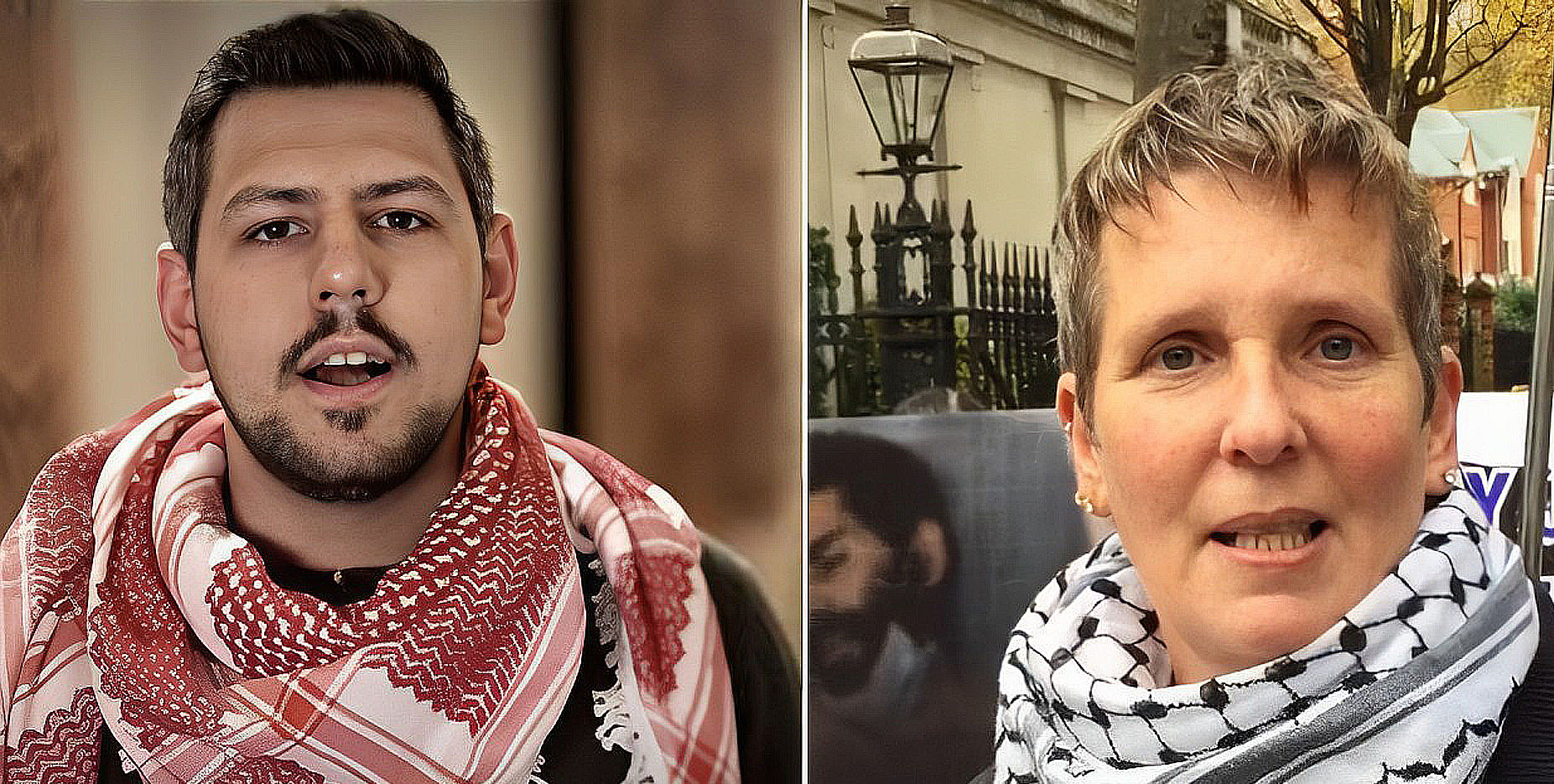
The past few months have exposed the troubling use of the UK’s anti-terrorism legislation to silence critics of Israel, raising serious concerns about the pro-Israel lobby’s growing influence over British legal and political systems.
In August, pro-Palestinian journalist Richard Medhurst was detained by police upon his arrival in the UK under the Terrorism Act. His electronic devices were confiscated, and he was compelled to disclose passwords, as refusal constitutes an automatic offence under the law. Medhurst was denied legal counsel until he specifically requested it, and no communication was allowed until his release nearly twenty-four hours later.
Medhurst, whose parents were among the UN Peacekeepers awarded the Nobel Peace Prize in 1988, now faces charges for “holding or expressing an opinion” that allegedly supports a proscribed group.
A week later, journalist Sarah Wilkinson had a similar experience when masked officers raided her home in the early hours. Her devices were seized, and she was forced to disclose passwords and contacts in Palestine—an egregious violation of journalistic privilege. Released on bail, she is prohibited from using a mobile phone or computer and can only communicate with her lawyer through her son, who was also affected by the raid.
On the same day as Wilkinson’s arrest, Richard Barnard, co-founder of Palestine Action, faced charges for allegedly supporting a proscribed group. Police used the Terrorism Act to detain seven other activists, who were subsequently charged with non-terrorism-related offences for breaking into the Filton site of Elbit Systems, Israel’s largest weapons manufacturer.
Arrested under the draconian Terrorism Act, the group endured a week in solitary confinement without access to their families. Sukaina Rajwani, the mother of one of the activists, Fatema, told The Muslim News that she was unable to speak to her daughter for nearly two weeks and had to wait over three weeks for a visit.
While the group denies any intent to commit violence, they acknowledge employing direct action to disrupt operations and highlight Elbit’s role in supplying arms to Israel. Their protest tactics include occupying rooftops, breaking windows, spraying red paint to symbolise bloodshed, and disabling equipment critical to military production.
The misuse of terrorism legislation against anti-Israel protests is part of a broader pattern of judicial manipulation, seemingly influenced by pro-Israel lobbyists. As we report on page 1, heavily redacted documents obtained by Palestine Action and reviewed by The Guardian reveal that Israeli embassy officials attempted to pressure the Director General of the Attorney General’s office to intervene in cases involving UK protesters.
This judicial interference mirrors the way pro-Israel lobbying has influenced UK foreign policy, particularly concerning Gaza. Earlier this month, the Metropolitan Police admitted to using anonymous, right-wing pro-Israel accounts to monitor pro-Palestinian demonstrations—an admission that surfaced during the trial of teacher Marieha Hussain, acquitted of charges for holding a satirical protest placard in London (p. 10).
During cross-examination, Chris Humphreys, Senior Communications Manager for the Met, revealed that the police had used posts from Harry’s Place and other similar accounts to inform their approach to pro-Palestinian marches.
Not content with influencing UK courts, pro-Israel lobbyists have even threatened the Chief Prosecutor of the International Criminal
Court with disbarment (p. 9). UK Lawyers for Israel demanded that British barrister Karim Khan reassess his demand for arrest warrants for the Israeli Prime Minister and Defence Minister, or face a formal report to the UK Bar Standards Board. Despite the intimidation, the prosecutor’s office reaffirmed its commitment to independent, impartial justice, insisting it “will not be improperly influenced by any form of threat or harassment in pursuing its Rome Statute responsibilities.”
The Labour government must explain why the Terrorism Act is being used to suppress anti-Israel activists, journalists, and protestors, and it must confront the growing pro-Israel influence on the judiciary, both domestically and internationally.
Photo: Pro-Palestinian journalists Richard Medhurst and Sarah Wilkinson were detained under the Anti-Terrorism Act. (Credit: WikiCommons)
GAZA SIEGE | SPECIAL COVERAGE
‘Unjustifiable,’ UK under fire for ‘misusing’ anti-terror laws to silence pro-Palestine activists
Editorial: Israel’s terrorist attacks on Lebanon, using pagers & walkie talkies, go unpunished
FIFA delays again review of Palestinian call to suspend Israel
France’s Chief Rabbi reported to prosecutors accused of condoning war crimes
Arrest of teacher over satirical coconut placard triggered by pro-Israel blog’s tweet
Texas woman charged over attempt to drown 3-year-old Palestinian girl in pool
Sharp spike: Anti-Arab, anti-Muslim hate crimes and surveillance surge nearly 200% in Chicago
UN report criticises UK’S ‘Prevent’ strategy for human rights violations